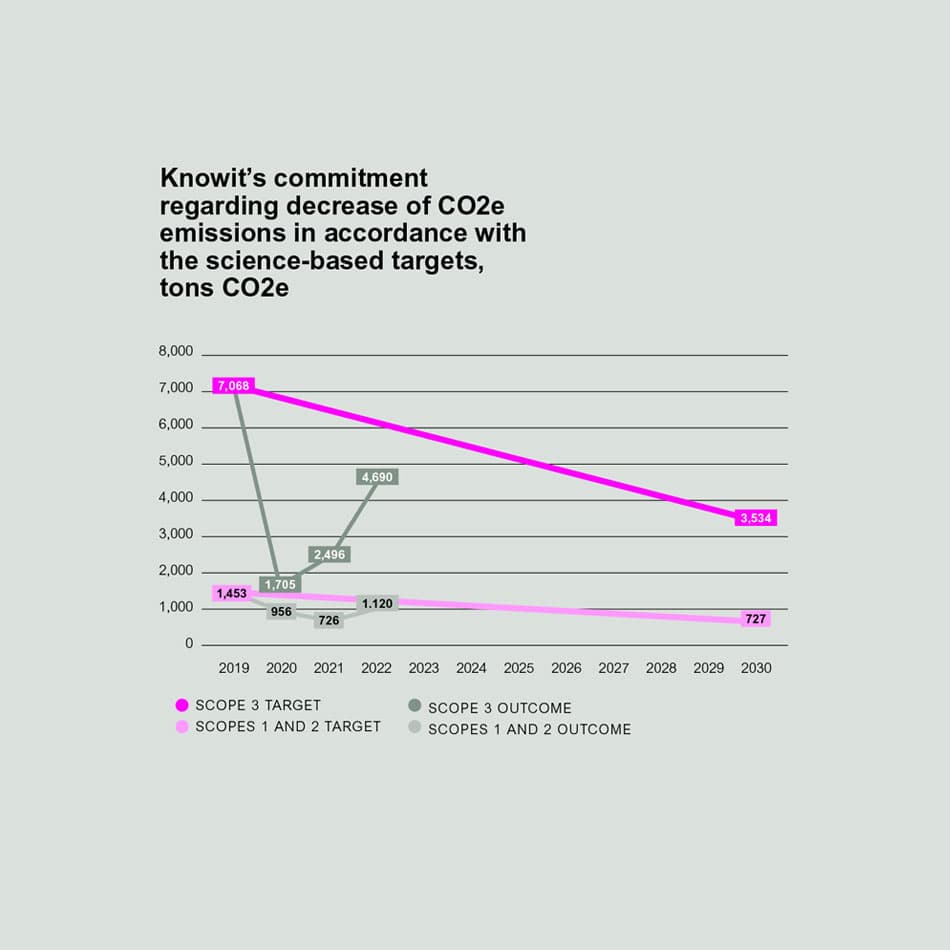Target: All suppliers used for important purchases shall be managed in accordance with Knowit’s purchasing routines.*
Result: During 2022, there were no suppliers on Knowit’s watch list. Two of the four suppliers that were on Knowit’s list of non-approved suppliers in 2020 remained on the list in 2021 and 2022.
Activities: The suppliers and sub-consultants that Knowit hires operate on the markets where Knowit operates and should work in accordance with the same basic values as Knowit. This is ensured through Knowit choosing suppliers/subconsultants after an evaluation showing that their fundamental values correspond to those of Knowit’s Code of Conduct. We call this principle “Careful Selection.” If Knowit assesses that there is uncertainty regarding or that there is a risk that a supplier’s fundamental values or actions do not correspond to Knowit’s Code of Conduct, and this cannot be clarified without contacting the supplier, Knowit’s internal supplier evaluation shall be supplemented by a “Survey for supplier evaluation.”
* An important purchase is one where the purchase is of a certain size and is expected to affect quality or is important from a sustainability perspective. There is no strict threshold, but as a rule of thumb, an important purchase is a standalone purchase of goods exceeding SEK 10,000 (or one that makes up part of an annual total volume exceeding SEK 50,000) or a purchase of services exceeding SEK 100,000 (or one that makes up part of an annual total volume exceeding SEK 250,000).


